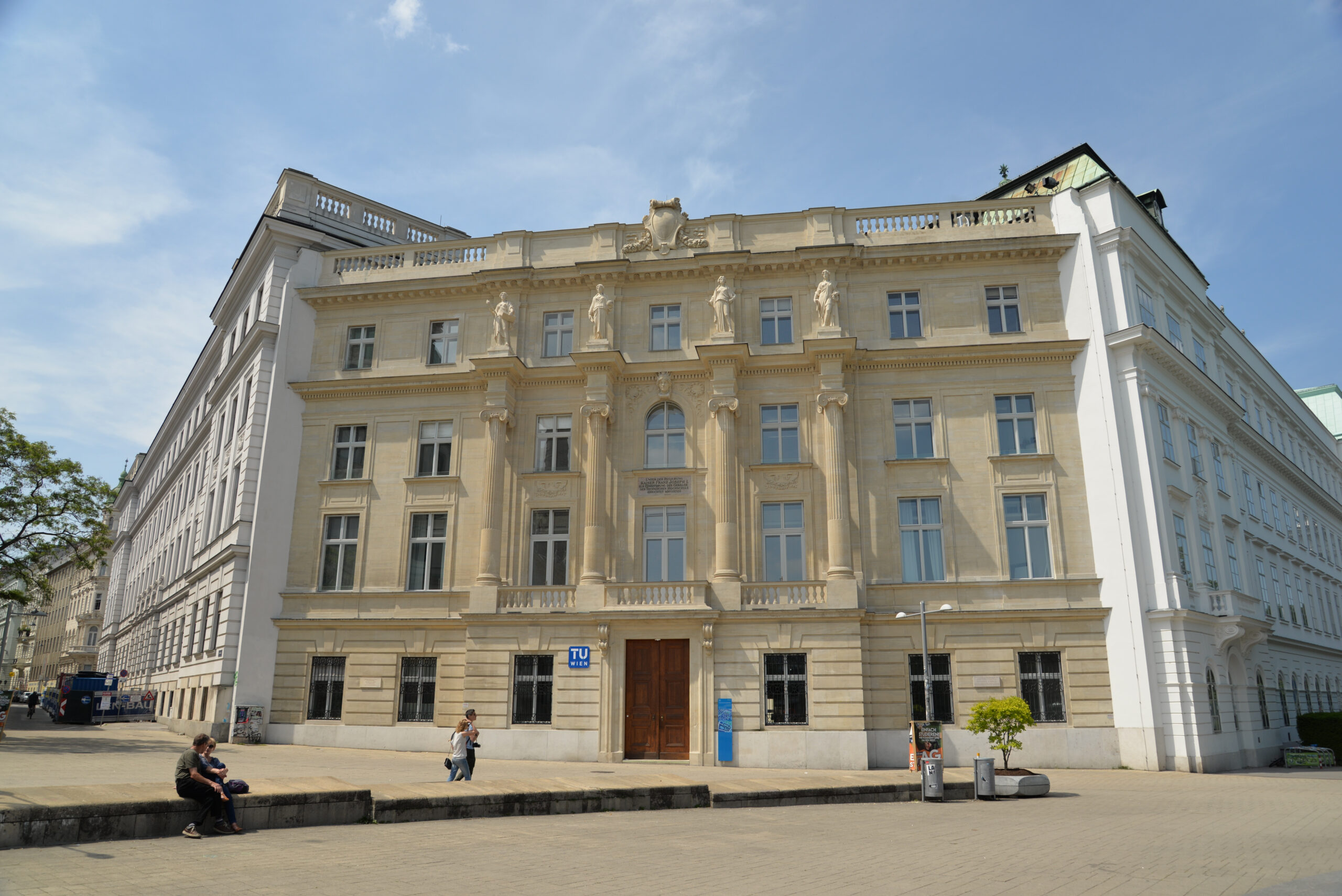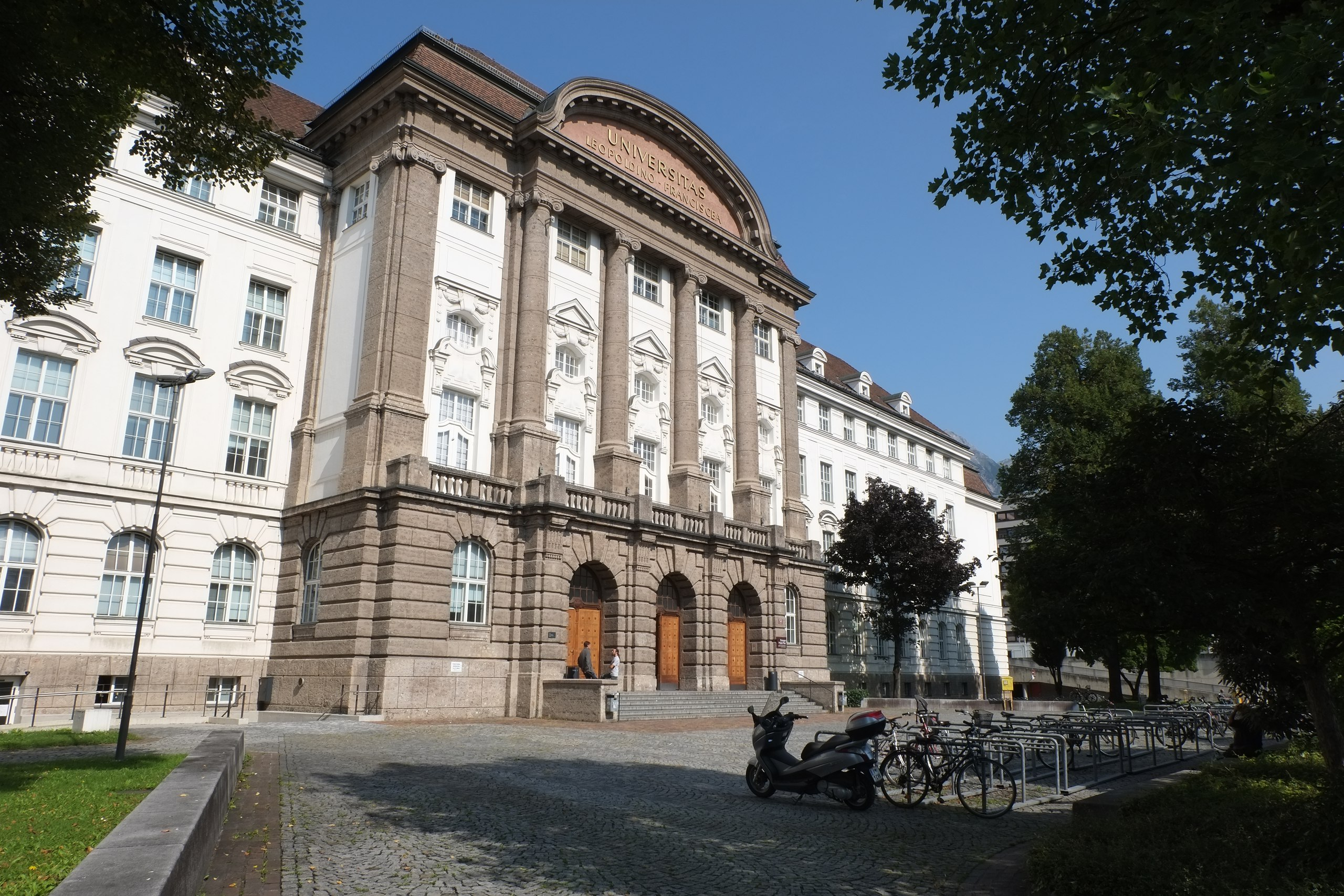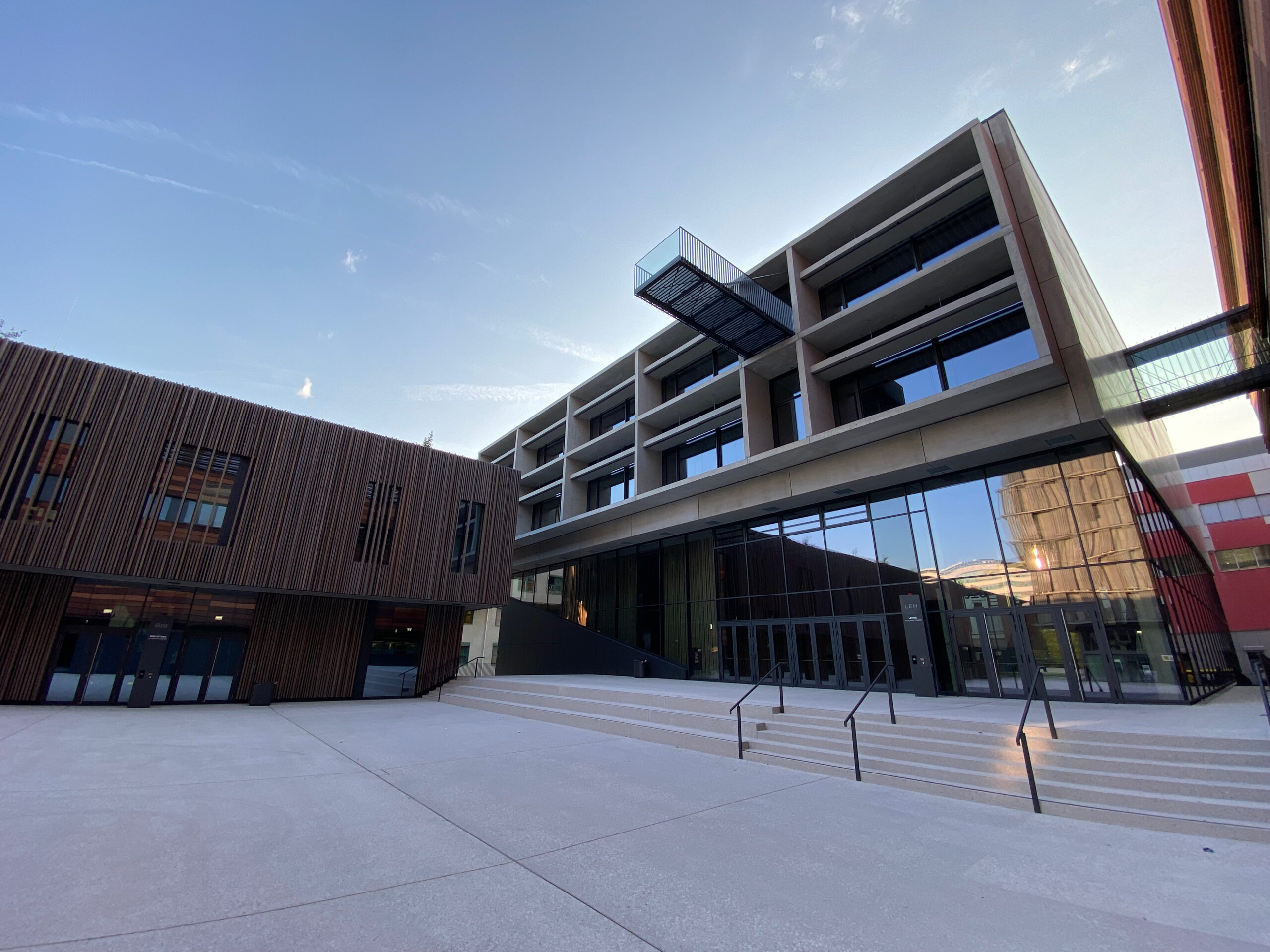UNIVERSITIES
MBBS in Austria
Austria, known for its castles and rich history, has emerged as a leading destination for MBBS education, particularly for students from developing Asian countries like India, Bangladesh, and Bhutan. With an elite European education system, Austria's medical universities have gained a reputation for excellence in both theoretical and practical training.
Austria offers a unique blend of affordable and high-quality education and a European standard of living, attracting around 500 international students annually. With four universities recognized by the National Medical Commission (NMC) and outstanding global rankings, Austria provides a golden opportunity for aspiring doctors. These universities deliver world-class education through innovative teaching methods, with courses offered in both English and German. The six-year MBBS program is not only accessible in terms of tuition fees but also prepares students to practice medicine globally, including in India.
Are you interested in studying medicine in Austria?
We will be happy to advise you free of charge about your options for studying medicine in Austria.
About Austria
Austria, a landlocked country in Central Europe, shares its borders with eight nations: Germany, the Czech Republic, Italy, Slovakia, Hungary, Slovenia, Liechtenstein, and Switzerland. With summer temperatures ranging from 20°C to 35°C and winter temperatures between 1°C and 4°C, Austria's climate is a mix of temperate and alpine. The country's landscape varies dramatically, with the towering Alps in the west and south, contrasted by rolling hills in the east and north. Vienna, the capital, serves as the cultural and political heart of the nation.
In addition to its academic prowess, Austria is celebrated for its peaceful environment and low corruption levels, making it an ideal place for students to focus on their studies. With technologically advanced curricula and a commitment to excellence, studying medicine in Austria is a decision that promises a bright future for Indian students and others seeking top-tier medical education in a beautiful and culturally rich country.
Why study MBBS in Austria?
- Affordable education: Public Austria medical university offers MBBS programs with no tuition fees, requiring only a modest semester fee of around 300 euros, making medical education highly accessible.
- Modern healthcare system: Austria boasts one of the most advanced healthcare systems in Europe, with state-of-the-art hospitals providing ideal conditions for high-level medical training and practical experience.
- Central European location: Strategically located in Central Europe, Austria offers easy and economical travel options, both within the country and to neighboring nations, enhancing the overall study-abroad experience.
- Stunning natural and urban landscapes: Austria's picturesque landscapes, including majestic mountains and clear lakes, combined with historic cities like Vienna, provide a beautiful backdrop for student life.
- Global recognition and accreditation: Austrian medical degrees are recognized globally, including by the National Medical Commission (NMC), ensuring that graduates can practice medicine worldwide, including in India.
- English-taught programs: While German language is the local language, many top Austrian medical colleges offer MBBS programs in English, making them accessible to international students without the need to learn a new language.
- Safe and welcoming environment: Austria is known for its safety and high quality of life, offering a secure environment for international students, with favorable living conditions and access to Indian food.
- No Hidden Costs: Admission to MBBS in Austria does not require any donation or capitation fees, ensuring a transparent and fair application process for all students.

Together for success - futureMBBS and studying medicine abroad
Do you want to study medicine abroad and are looking for the most suitable university for you and don't really know where to start looking for the right country and a good university? futuredoctor is happy to support you!
Besides the Student advisory service In addition to selecting the university and accompanying you to the desired on-site appointments, futureMBBS also offers support during the application process and preparation for possible aptitude tests, as well as orientation at the place of study - including the search for accommodation! Get your application quickly and easily free info pack!
Important highlights: Pursuing MBBS in Austria medical college
A brief overview of pursuing MBBS in Austria
Attribute | Details |
Admissions and intake | September - October |
MBBS duration | 6 Years (5 years medical studies with 1-year internship) |
Basic eligibility | 50% in 12th - PCB (Physics, Chemistry, Biology) |
NEET entrance exam | Yes |
Minimum course fee | 15,00,000 INR |
Maximum course fee | 80,00,000 INR |
Cost of living in Austria | 25,167 INR- 29,362 INR per month |
Medium of teaching | English & German |
University recognition | NMC, WHO, FAIMER, UNESCO, Ministry of Education-India |
Top medical university | The Medical University of Vienna |
Advantages of studying MBBS in Austria for Indian students (2025 - 2026)
Austria offers several benefits for Indian students pursuing an MBBS degree:
- Streamlined admission process: Indian students can easily gain admission to a medical colleges in Austria due to the straightforward application procedure.
- No English proficiency test required: There is no need to pass an English proficiency test to enroll in MBBS programs in Austria.
- Globally recognized degrees: MBBS degrees from Austrian medical colleges are valid and approved by the National Medical Commission (NMC), ensuring international recognition.
Eligibility criteria for MBBS in Austria
To be eligible for MBBS in Austria, students must meet the following criteria:
- Educational background: Students should have completed their 12th grade with a focus on science, achieving a minimum aggregate of 50% in Physics, Chemistry, and Biology.
- Age requirement: Applicants must be at least 17 years old to qualify for admission to Austrian medical colleges or universities.
- NEET exam: Students must pass the NEET exam with the required scores to be eligible for MBBS programs in Austria.
- English proficiency: English should be a subject in the student's higher secondary education.
Top universities for MBBS in Austria (2025-2026)
Medical University of Vienna
Medical University of Graz
Medical University of Innsbruck (MIU)
Paracelsus Private Medical University Salzburg (PMU)
Karl Landsteiner Private University Krems
Johannes Kepler University Linz
Medical University of Vienna
The Medical University of Vienna, Austria’s largest and one of the oldest medical training institutions dating back to 1399, is renowned for its prestigious education and research. Key features include:

- 6-Year English-taught MD program: Comprehensive training in medicine with instruction in English.
- Affiliation with Vienna general hospital: Provides extensive clinical clerkship opportunities and hands-on experience.
- Specialization and research: Offers diverse medical specialties and interdisciplinary research projects.
- Globally recognized degree: Equips students with credentials recognized worldwide for international career success.
The university is known for its problem-oriented curriculum, high-quality education, method-led examinations, and subject integration, with a focus on emerging topics like gender medicine. Each year, 680 places are available for students in human medicine, with additional opportunities to study dentistry.
Vienna, a vibrant student city, offers a rich cultural experience with numerous theatres, opera houses, museums, galleries, parks, and a lively nightlife. The city's diverse amenities enhance the overall student experience, making it an ideal location for academic and personal growth.
Medical University of Graz
Founded in 2004, the Medical University of Graz combines centuries of academic tradition with modern facilities across three campuses. Key features include:

- English-taught program: Focuses on patient-centered care
- Early clinical exposure: Patient contact and GP training from the first year
- Extensive practical training: Hands-on experience at nearly 50 university hospitals and clinical institutes
- Advanced simulation labs: Cutting-edge technology for immersive medical training
The university excels in blending top-quality medical education with a rich student experience. Graz, located in southern Austria, offers a perfect mix of culture, leisure, and high quality of life, with its green spaces, cultural events, and diverse dining options enhancing student life.
Medical University of Innsbruck (MIU)
With a 500-year legacy, the Medical University of Innsbruck is renowned for its research and practical training, offering:

- English-taught six-year MD program: Available to international students.
- Comprehensive patient interaction: Through attachments at the university hospital.
- Mandatory dissertation and practical seminars: Emphasizing applied learning.
- Alpine city atmosphere: Promotes cultural integration and a pleasant campus experience.
Innsbruck Medical University admits 360 new students annually for human medicine and also offers dentistry programs. The curriculum integrates interdisciplinary modules with early patient contact. Located in the scenic Austrian Alps, Innsbruck provides a vibrant student life with activities like skiing, hiking, and a rich cultural scene featuring concerts, theatre, and film festivals.
Medical Faculty of the JKU Linz
The Faculty of Medicine at the Johannes Kepler University Linz was only founded in 2014 and therefore has state-of-the-art classrooms and laboratories. Medical teaching is at the cutting edge of science. The Faculty's unique research specialisms include clinical ageing research and healthcare research.

The beautiful city on the Danube offers you a variety of opportunities to organise your student life. The mixture of small cafés, bars and clubs makes for a lively social atmosphere. In addition, life in Linz is somewhat cheaper compared to larger cities such as Vienna.
Paracelsus Private Medical University Salzburg (PMU)
Paracelsus Medical University Salzburg is a modern private institution offering:
- Futuristic campus: Equipped with advanced simulation technology and robotics.
- Selective six-year MD program: Focuses on ambulatory and family medicine, with early integration into hospital practice through GP office internships.
- Applied learning: Emphasizes early patient interaction, clinical placements, and a mandatory doctoral thesis.
- Research opportunities: Offers integrated PhD degrees and opportunities for research publications.
- Global exposure: Includes potential internships at prestigious institutions like the Mayo Clinic in the USA.
- Smaller class sizes: Provides a personalized teaching experience with excellent supervision.
- Competitive pricing: More affordable compared to other private medical schools in Austria.
- Modern facilities: Features a state-of-the-art library, campus restaurants, gym, and recreational areas.
Located in Linz, a city known for its cultural events and technology hub status, PMU offers a vibrant student life surrounded by the scenic Alps. The university's innovative approach ensures graduates are well-prepared for diverse career paths, including clinical practice, healthcare administration, clinical research, consulting, and academic roles.
Karl Landsteiner Private University Krems
The medical degree programme at Karl Landsteiner University is divided into a three-year Bachelor's degree and a three-year Master's degree. On the basis of a modern curriculum, students at the private university are taught the knowledge required for the medical profession in an interprofessional, practical manner and in small groups.
The city of Krems is located on the Danube in the north-east of the country. It has a compact size and therefore exudes the charm of a small town with a personal atmosphere. Numerous vineyards surround the town. The surrounding countryside offers countless outdoor opportunities such as hiking or cycling.
What are the requirements for studying MBBS in Austria?
Austria has top medical universities and the admission process for medicine involves specific requirements due to the high number of applicants for limited spots. Public universities require the MedAT entrance test, which is conducted annually and is specific to each institution. You must pass this test to start medical studies at that university.
The MedAT consists of multiple-choice questions assessing your skills in cognition, basic science, text comprehension, verbal reasoning, and social-emotional skills. If you do not pass, you can retake the test the following year. We’ll assist you in preparing to ensure you succeed on your first attempt.
Private universities have their own entrance tests. Some programs are taught in German, so if German is not your native language, you'll need a minimum proficiency level of C1.
Additionally, Johannes Kepler University Linz and the Medical University of Graz require proof of Latin knowledge. If you do not have adequate evidence of previous Latin studies (at least 10 hours per week), you will need to pass a supplementary examination.
Documents required for MBBS admission in Austria 202 5- 2026
Document | Details |
Completed application form | With accurate details |
Passport | Original and photocopies |
Birth certificate and other required certificates | Submit to the concerned authority |
Passport-sized photographs | 3cm x 4cm |
Mark sheets | Original and photocopy of 10th & 12th grades |
NEET scorecard | If applicable |
Transfer certificate | From the previous school |
Leaving certificate | From the concerned school |
Certificate of conduct | Must be submitted |
Bank statement | Showing sufficient funds for fees |
Medical check-up certificate | Essential |
Academic scores | Minimum 50% aggregate in core subjects |
Valid passport and education certificates |
Structure of MBBS studies in Austria
The structure of the MBBS degree program in Austria varies slightly between universities.
University of Vienna and Medical University of Innsbruck: The MBBS program is divided into three sections, spanning six years in total. The first two semesters focus on acquiring social skills and understanding health, disease, and human body functions. The second section, lasting six semesters, covers physiology and pathophysiology. The final section, comprising the eleventh and twelfth semesters, is the Clinical Practical Year (CPY), where you will gain hands-on experience in medical work at university or cooperating teaching hospitals.
Johannes Kepler University Linz and Medical University of Graz: Their MBBS program is structured into a three-year Bachelor’s degree followed by a three-year Master’s degree. The Bachelor’s phase provides interdisciplinary basic knowledge and practical experience from the first semester. After completing the Bachelor’s degree, you can pursue a Master’s degree in Human Medicine, focusing on surgery, pediatric cardiology, emergency medicine, psychology, and sports medicine. The final year includes a clinical internship in various hospital departments.
Karl Landsteiner Private University: Offers a three-year Bachelor’s degree in Medical Science followed by a three-year Master’s degree in Human Medicine. The Master’s program primarily involves clinical teaching at the university hospitals in Krems, St. Pölten, and Tulln.
Paracelsus Medical University (PMU): The MBBS program is divided into a Bachelor’s and Master’s degree. PMU stands out for its five-year program due to a streamlined curriculum, shorter holiday periods, and training in small groups.
MBBS in Austria - Academic Calendar 2022
Here are the key dates for MBBS admissions in Austria:
Event | Date |
Application date | February |
Last date to apply | June/July |
Visa approval date | August/September |
New session start date | September/October |
Recognition of MBBS universities in Austria
Austrian universities offering MBBS programs are recognized by the following medical councils and organizations:
- National Medical Commission (NMC)
- World Health Organization (WHO)
- United States Medical Licensing Examination (USMLE)
- United Nations Educational, Scientific and Cultural Organization (UNESCO)
- Ministry of Education, India
Safety index of Austria
Austria is recognized as one of the safest European countries for travel and education. According to the Global Finance Safety Index Score (2019), Austria ranks 5th among the world's safest and most peaceful countries.
Rank | Nation | Global Finance Safety Index Score |
1 | Iceland | 6.16 |
2 | Switzerland | 7.01 |
3 | Finland | 7.04 |
4 | Portugal | 7.07 |
5 | Austria | 7.08 |
How much does it cost to study medicine in Austria?
Public universities in Austria do not charge tuition fees. However, there is a semester fee of approximately ₹33,000 (385 euros). The entrance test required for the application costs around ₹10,000 (110 euros).
Private universities do charge tuition fees. The Karl Landsteiner Private University costs about ₹14,40,000 (16,000 euros) per semester for studying human medicine. At Paracelsus Medical University Salzburg, the semester fee is approximately ₹18,00,000 (20,000 euros) per year.
Cost of living in Austria for Indian students
Here are the average monthly expenses for Indian students in Austria:
Particulars | Amount (EUR) | Amount (INR) |
External accommodation | 740 | ₹66,788 |
Food (monthly cost) | 275 | ₹24,832 |
Transportation (Pass) | 55 | ₹4,966 |
Monthly grocery | 90 | ₹8,118 |
Basic amenities | 90 | ₹8,118 |
Total monthly expenditure (Avg) | 1,250 | ₹1,22,832 |
More details about Austria
Country overview
Aspect | Details |
Religion | Roman Catholic Christianity |
National currency | Euro |
Capital city | Vienna |
Rate of exchange (Dec 2021) | 1 Euro = ₹93.13 |
Population | 8,806,000 |
Official language | German |
Climate | 27°F to 79°F |
Time difference | 7 hours 29 minutes behind India |
Visa procedure for MBBS in Austria
- Complete the online application: Fill out the online application form with accurate details and submit all required documents.
- Receive offer letter: Once the application is processed, you will receive an offer letter from the university.
- Pay fees: Pay the required MBBS tuition fees to the university.
- Apply for visa: After payment, apply for a student visa with the necessary documentation.
- Book tickets: Once you receive your student visa, you can proceed to book your travel tickets.
Career opportunities for Indian students after MBBS in Austria
Studying medicine at Austria's top-ranked universities opens doors to a range of global career opportunities:
- Work in Austria: Positions in hospitals, diagnostic centers, or pharmaceutical roles.
- Further education: Pursue Master's or doctoral degrees, or engage in research.
- International opportunities: Apply for residency programs in various countries.
- Returning to India: Practice medicine in India after passing the NExT exam.
What you didn't know about Austria
- Vienna is considered the most liveable city in the world. As of 2023, Vienna is the number one most liveable city according to the "Global Liveability Index". Vienna is also one of the greenest metropolises in the world. Over 53 per cent of the city area consists of parks and green spaces!
- The Europe's highest waterfall can be found in Austria. With a height of 380 metres, the Krimml waterfall is a spectacular attraction that you shouldn't miss.
- Land of the famous classical composers. Schubert, Bruckner, Mozart, Strass, Mahler - the list of musicians born in Austria is long. These musicians are commemorated in numerous museums, at music festivals and in the form of sweets (Mozartkugeln!).
Applying to study MBBS in Austria
When applying for a place to study MBBS at a public university, it is important that your documents are complete and that you pass the MedAT. You should prepare well for this. It is also important that you familiarise yourself with the different Application deadlines of the various universities. We'll help you prepare and make sure you don't lose sight of the application process!
Are you ready to realise your dream of studying MBBS in Austria? Contact us today and start your journey with futureMBBS. We look forward to accompanying you on your journey and working with you to realise your dream of a career in medicine.
STARTING SHOT
What are you waiting for? 🎉
Order your information package now, find out about studying medicine abroad and get started as a medical student!
FAQs about studying medicine in Austria
What are the advantages of studying medicine in Austria?
Studying medicine in Austria offers numerous advantages: Lectures in German, internationally recognised degrees, no tuition fees at public universities, access to a state-of-the-art healthcare system, geographical proximity to Germany and a fascinating landscape and historic cities.
Is there a numerus clausus (NC) for studying medicine in Austria?
No, there is no NC for medical studies in Austria. Instead, you have to pass a medical entrance test (MedAT), which assesses your suitability for the degree programme.
How much does it cost to study medicine in Austria?
There are no tuition fees at public universities in Austria, but a semester fee of around 300 euros is payable. Private universities, however, charge tuition fees.
Which universities in Austria offer a medical degree programme?
You can study medicine at six universities in Austria: Medical University of Vienna, Medical University of Graz, Medical University of Innsbruck, Medical Faculty of the JKU Linz, Paracelsus Medical University Salzburg and Karl Landsteiner Private University Krems.
What are the requirements for studying medicine in Austria?
You do not need an outstanding average grade (no NC), but you must pass the MedAT. German language skills at C1 level are required, and some universities require knowledge of Latin.
How is the medical degree programme in Austria structured?
The structure varies between universities. Many offer a six-year degree programme, divided into Bachelor's and Master's phases, with a mixture of theory, practice and clinical training.
How can I apply to study medicine in Austria?
Passing the MedAT is crucial for your application. You should prepare for the test in good time and observe the application deadlines of the respective universities.
What does Vienna offer as a study location for medical students?
Vienna, the most liveable city in the world, offers a rich culture, a wide range of leisure activities, green parks and an excellent infrastructure for students.
Are there alternatives to studying medicine in Austria for applicants without a high school diploma?
Yes, there are Countries where you can also study medicine with a vocational baccalaureate. Futuredoctor can help you find the right options.
29 countries for your medical studies
Netherlands
Groningen, Maastricht, Amsterdam, Leiden, Utrecht, Rotterdam
Switzerland
Basel, Fribourg, Bern, Geneva, Zurich, Neuchâtel, Lausanne


























